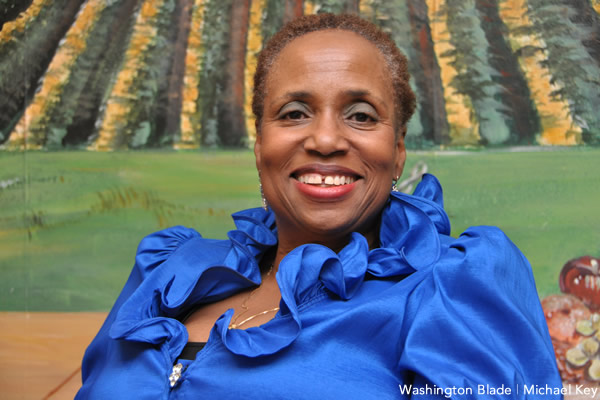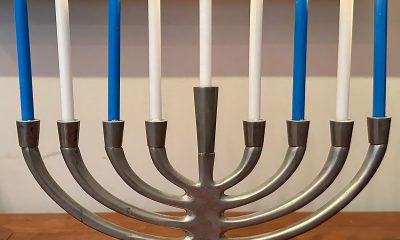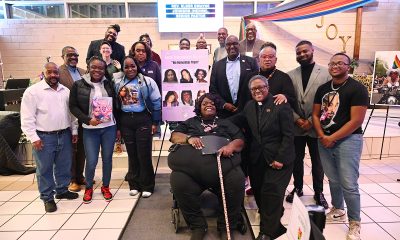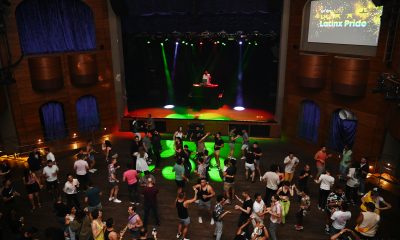Arts & Entertainment
Queery: Imani Woody Macko
The MCC-DC board member and Kwanzaa organizer answers 20 gay questions
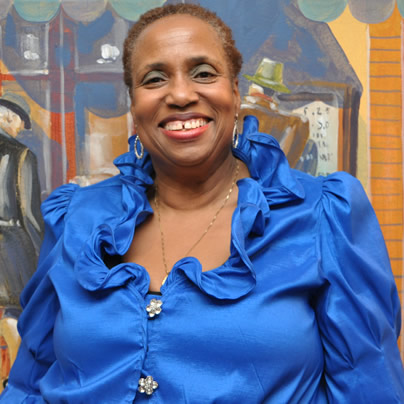
Imani Woody Macko says even though Kwanzaa isn’t a religious holiday per se, it’s important for it to be acknowledged at her church, Metropolitan Community Church of Washington, because it’s an inclusive place.
“It’s an acknowledgement of others’ cultures and that these principles are important,” she says. “They help us all live our lives and, as we say here at MCC, this is our little mantra now — they help us grow from the inside out.”
MCC-D.C., the District’s largest mostly LGBT church (474 Ridge Street, N.W.) has its annual Kwanzaa celebration slated for Dec. 29 at 5 p.m. Nearly 100 attended last year. Macko says several African-American LGBT leaders, such as Phil Pannell and Rev. Rainey Cheeks, will be present. And it’s not just for the black community — Woody Macko says all ages and races will participate as in previous years. Singing, drumming, dancing, candle lighting, a kids’ performance and more will be included. Visit mccdc.com for details.
Woody Macko has been attending MCC for about 15 years. She’s on the board and co-chairs an older adults program for the denomination. Providing services for older LGBT people is one of her passions. When her father died two years ago, she inherited his house, which she hopes to convert into an affordable center of studio units for older LGBT adults. Find the group on Facebook at Mary’s House for Older Adults.
“I want to make sure people don’t feel they have to go back in the closet when they move into a retirement community,” Woody Macko says. “I’ve seen instances where you see these big gay boys or really big dykes or maybe somebody who came out later in life and they’re in a vulnerable position anyway because they’re older. Nobody should have to go back in the closet. We need affordable housing for older LGBT adults where they can live as their whole person.”
Woody Macko, a native Washingtonian, has also had stints in Hawaii, Pennsylvania and North Carolina but says she “always ends up back home in Washington.” She and her partner of 12 years, Andrea, had a commitment ceremony seven years ago and got married two years ago. They live in D.C.’s Brookland neighborhood.
Woody Macko enjoys swimming and reading in her free time.
How long have you been out and who was the hardest person to tell?
For many years. My son, who at the time was 16.
Who’s your LGBT hero?
Barbara Smith. She’s one of the first women whose activism and writings as a black lesbian feminist resonated with me.
What’s Washington’s best nightspot, past or present?
Hill Haven, a gathering spot particularly for lesbians of color. I danced many a night there.
Describe your dream wedding.
(It was) a room filled with people who love and care about me and my (now) wife, with candles and the song “I need you to survive” by Kirk Franklin.
What non-LGBT issue are you most passionate about?
Aren’t LGBT people in all issues? I am passionate about eliminating racism, classism and ageism.
What historical outcome would you change?
The assassination of Rev. Martin Luther King, Jr.
What’s been the most memorable pop culture moment of your lifetime?
Memorable… hmm…
On what do you insist?
Authenticity.
What was your last Facebook post or Tweet?
“You can still donate to Mary’s House by sending a check to P.O. Box 29561, WDC 20017!”
If your life were a book, what would the title be?
“The Amazing Lives of Imani Freewoman”
If science discovered a way to change sexual orientation, what would you do?
Nothing.
What do you believe in beyond the physical world?
Energy forces.
What’s your advice for LGBT movement leaders?
To work with other communities on their issues andlisten to and be inclusive of the voices of people who are often disenfranchised and oppressed including people who are young and old adults, people living in poverty, people who immigrated here, people of color, people with physical and mental disabilities.
What would you walk across hot coals for?
The elimination of poverty and global peace
What LGBT stereotype annoys you most?
That butch women are trying to be men.
What’s your favorite LGBT movie?
Don’t have a favorite LGBT movie but would watch “Black is … Black Ain’t” over and over again.
What’s the most overrated social custom?
If you are talking about manners and social graces, we need more kindness and acceptance in the world. Words to express that one is thankful, pleased or apologetic aid in this effort.
What trophy or prize do you most covet?
The love and support of my biological and logical family.
What do you wish you’d known at 18?
That getting married (to a man) was not the only path.
Why Washington?
It is my home, my city. I grew up with the Frederick Douglas House, the Smithsonian Museum and the National Zoo. More importantly, it has some of the strongest human rights laws in the country.
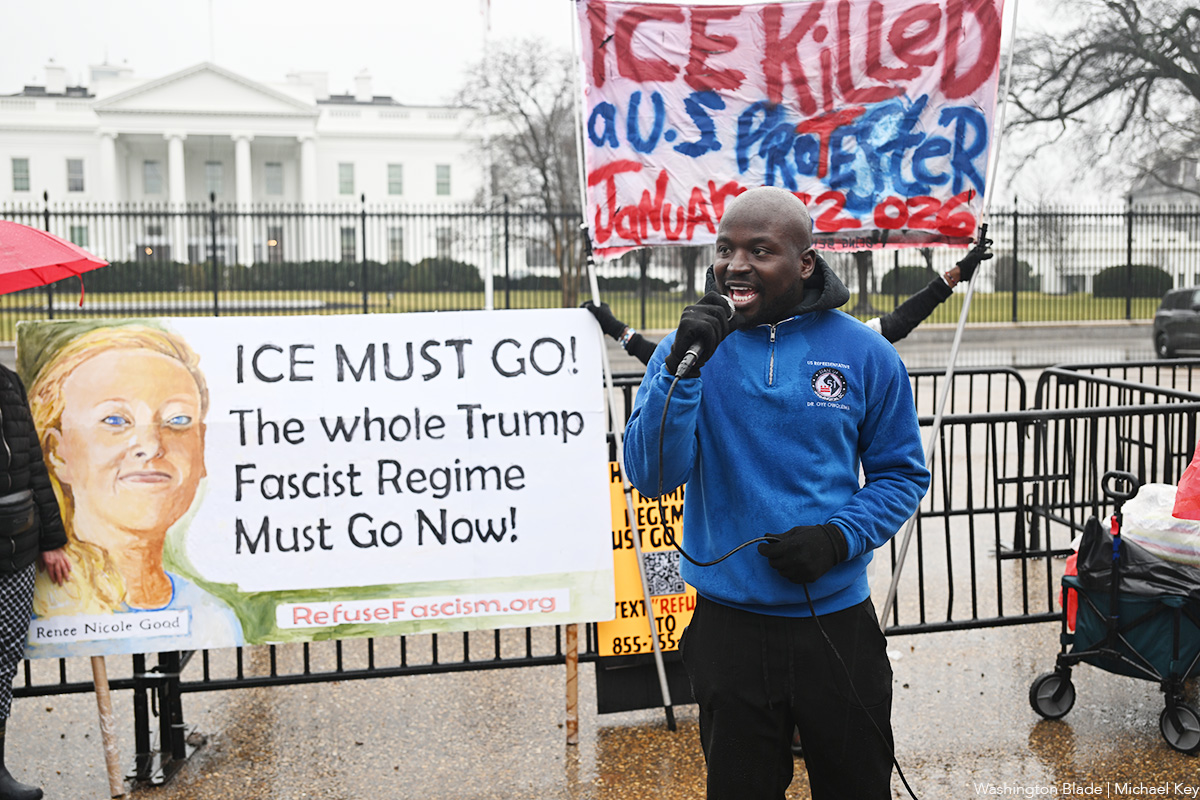
A protest was held outside of the White House on Saturday following the killing of Renee Nicole Good by a U.S. Immigration and Customs Enforcement agent in Minneapolis. Across the Potomac, picketers held signs calling for “Justice for Renee” in Tysons, Va.
“ICE Out For Good” demonstrations were held in cities and towns across the country, according to multiple reports. A march was held yesterday in Washington, D.C., as the Blade reported. Further demonstrations are planned for tomorrow.
(Washington Blade photos by Michael Key)
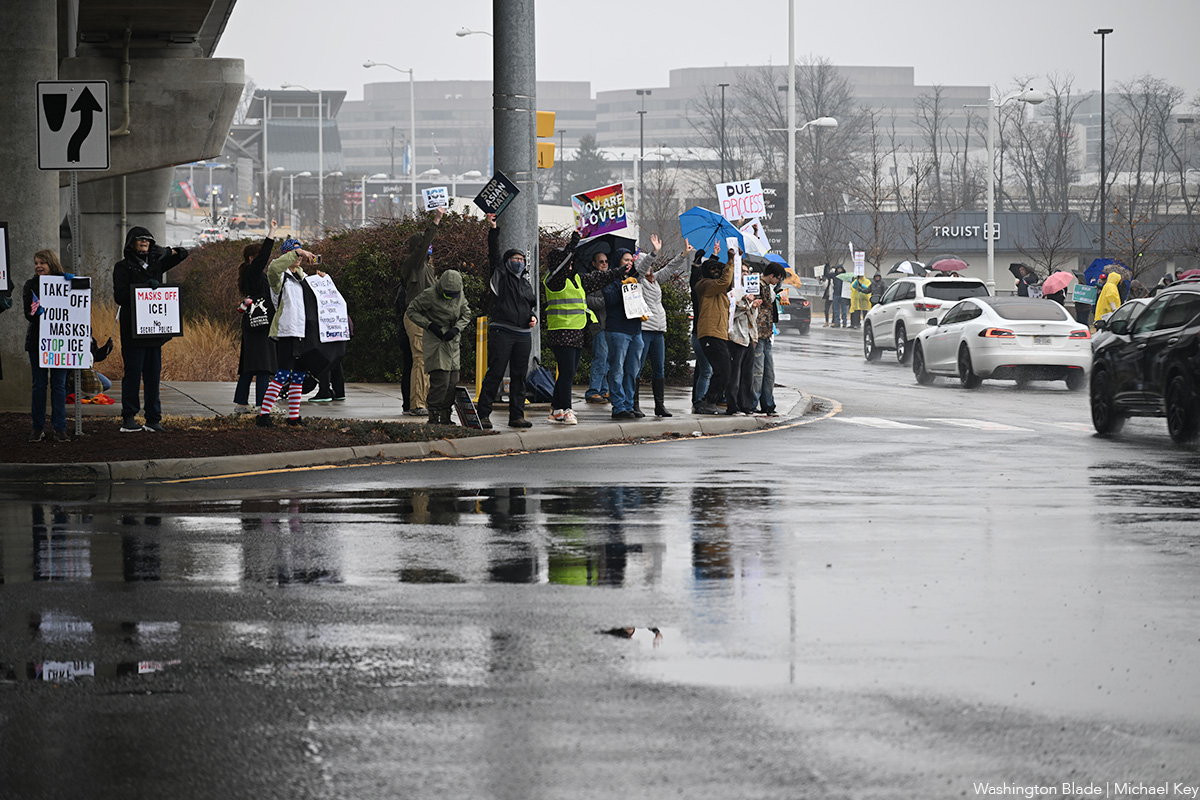
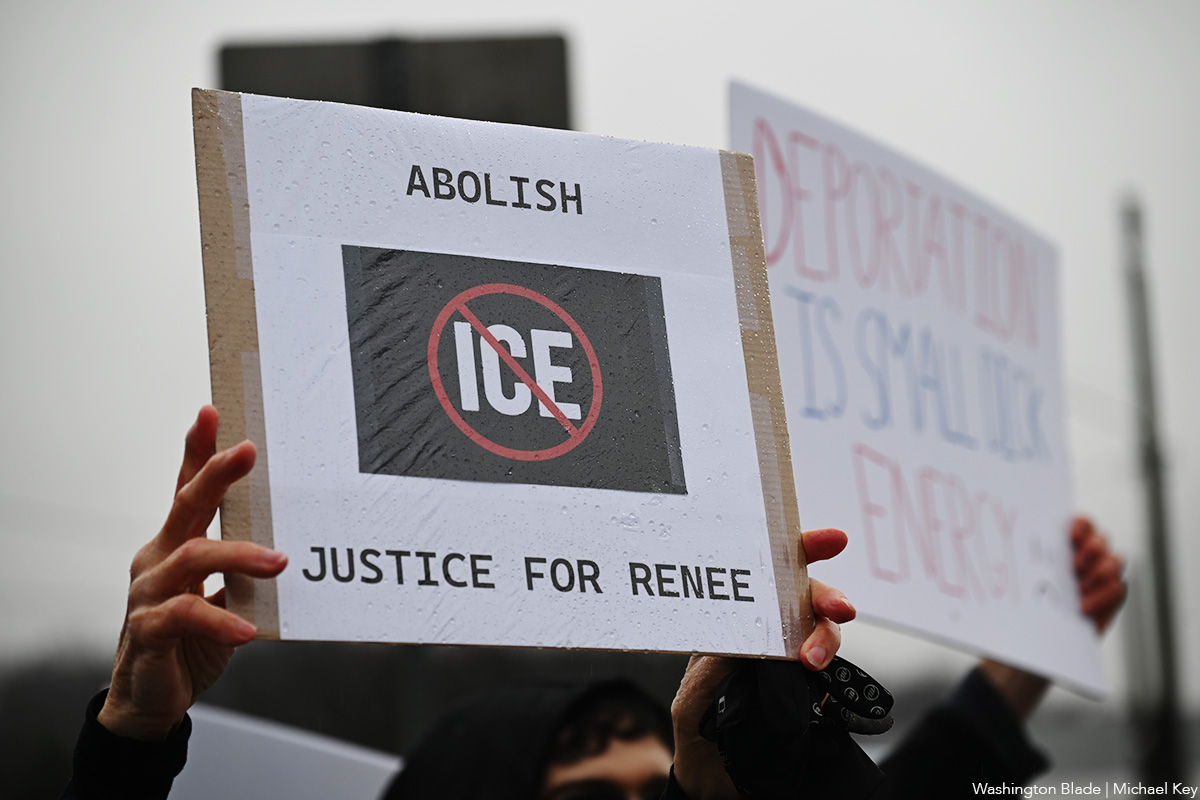
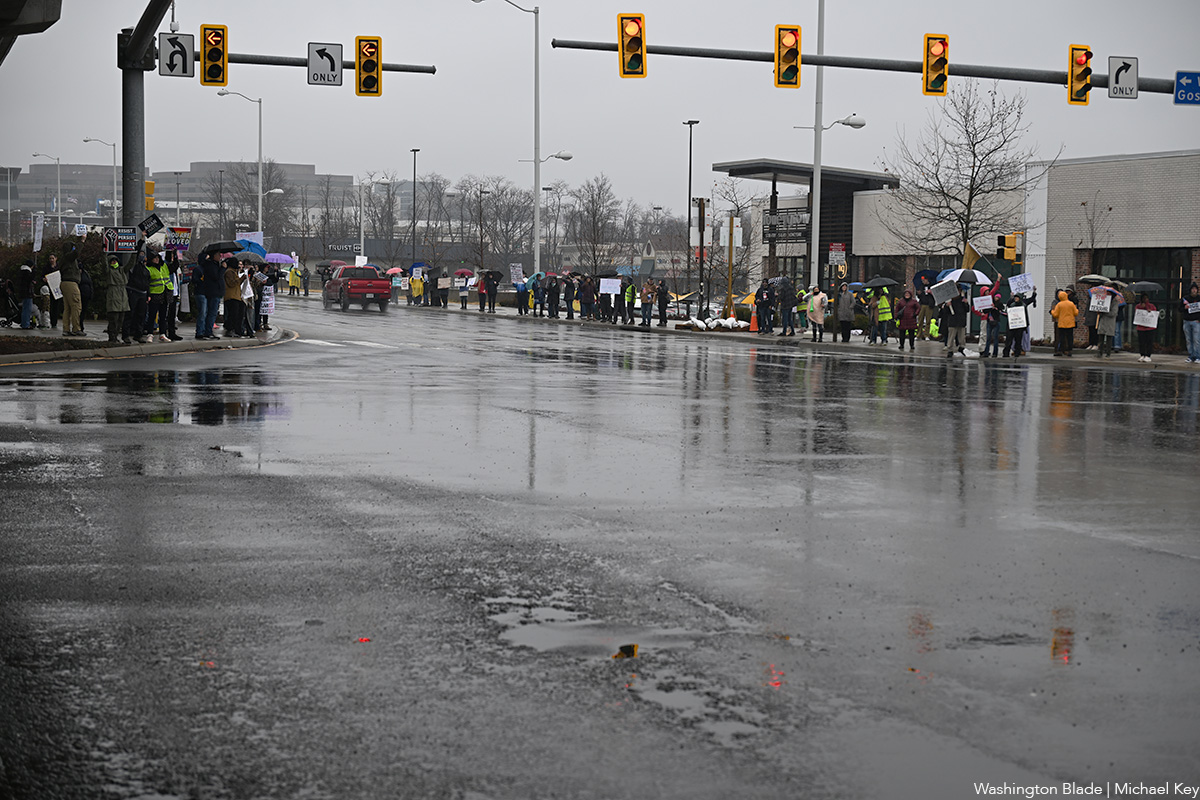
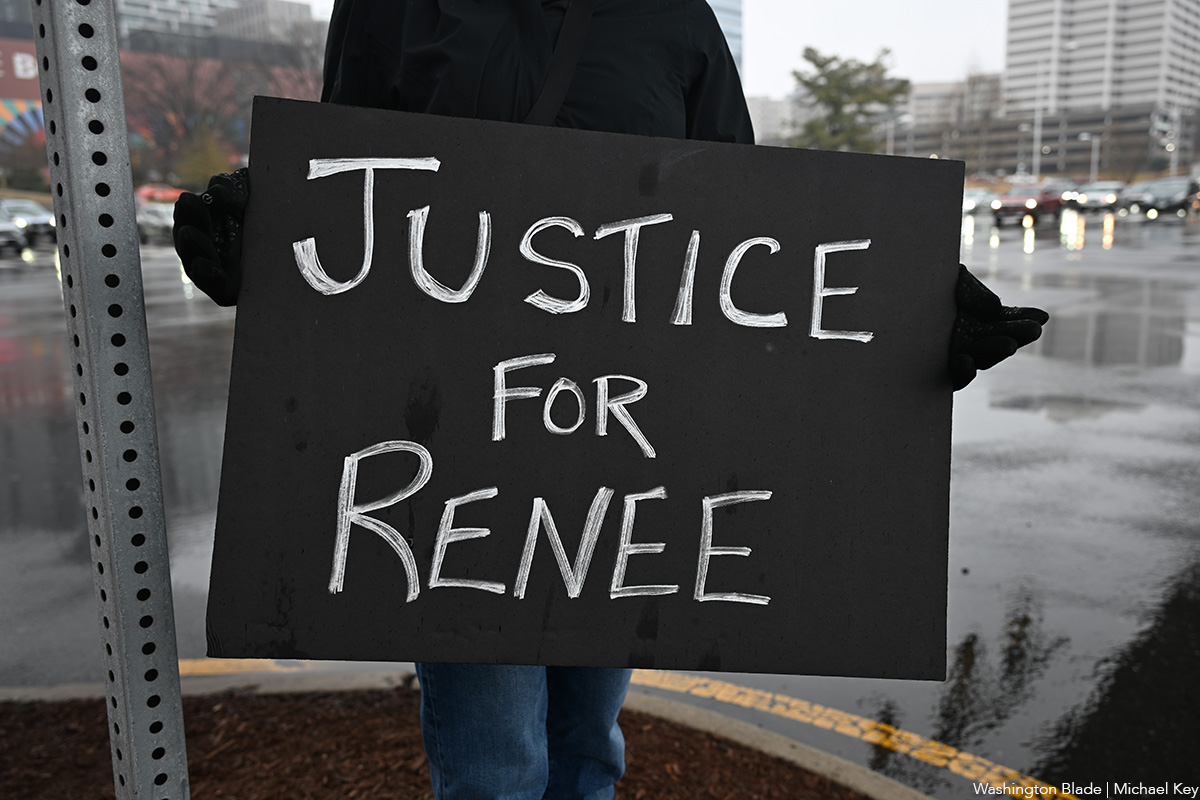
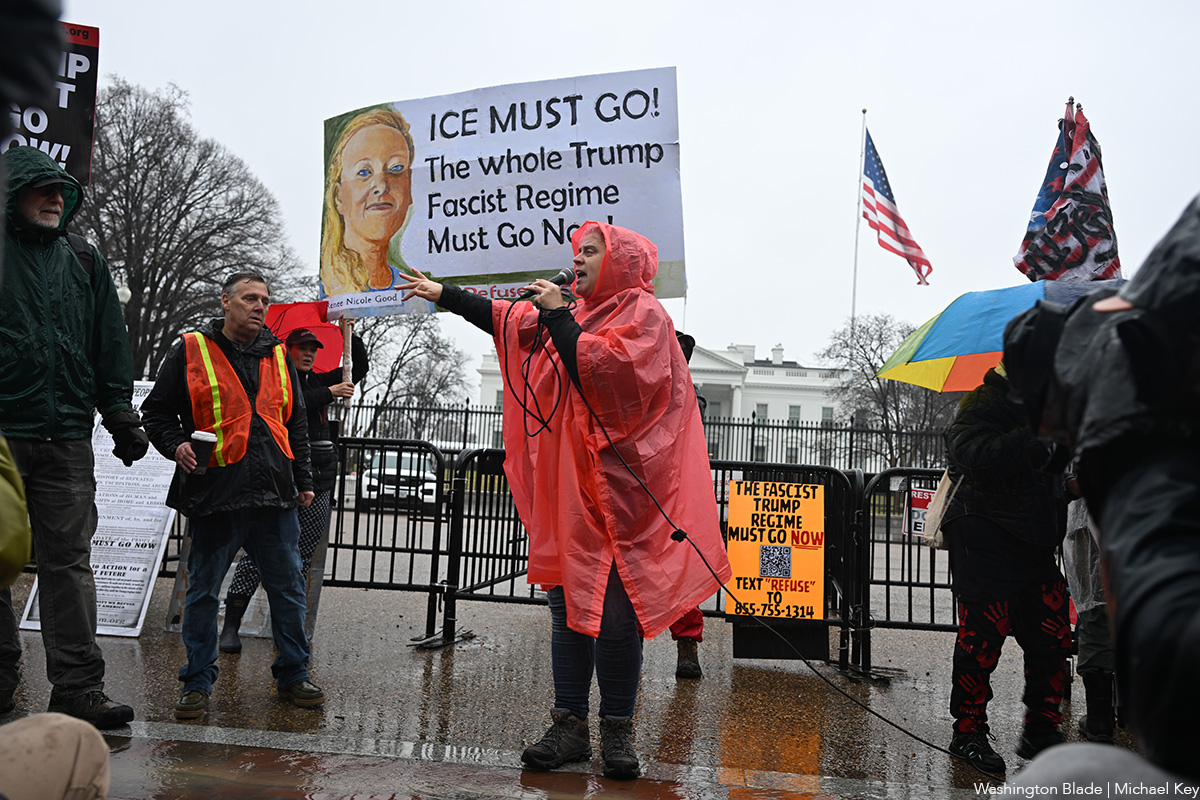
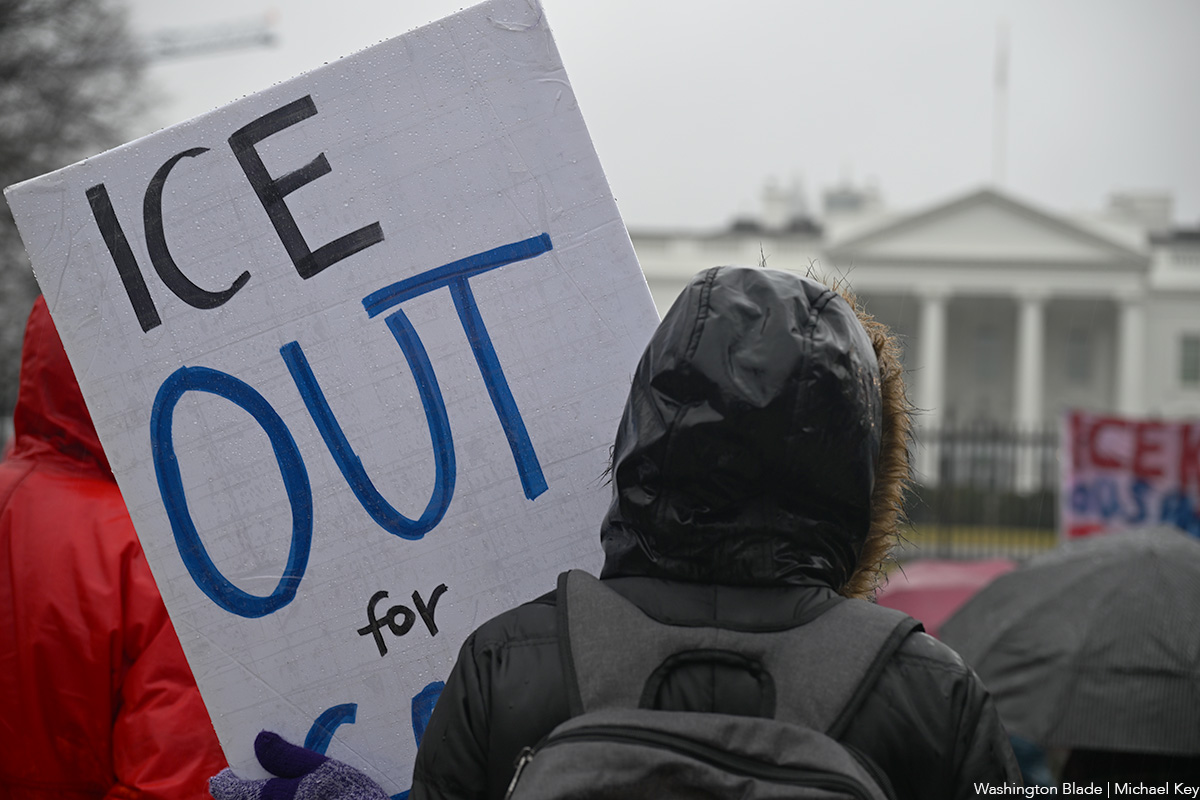
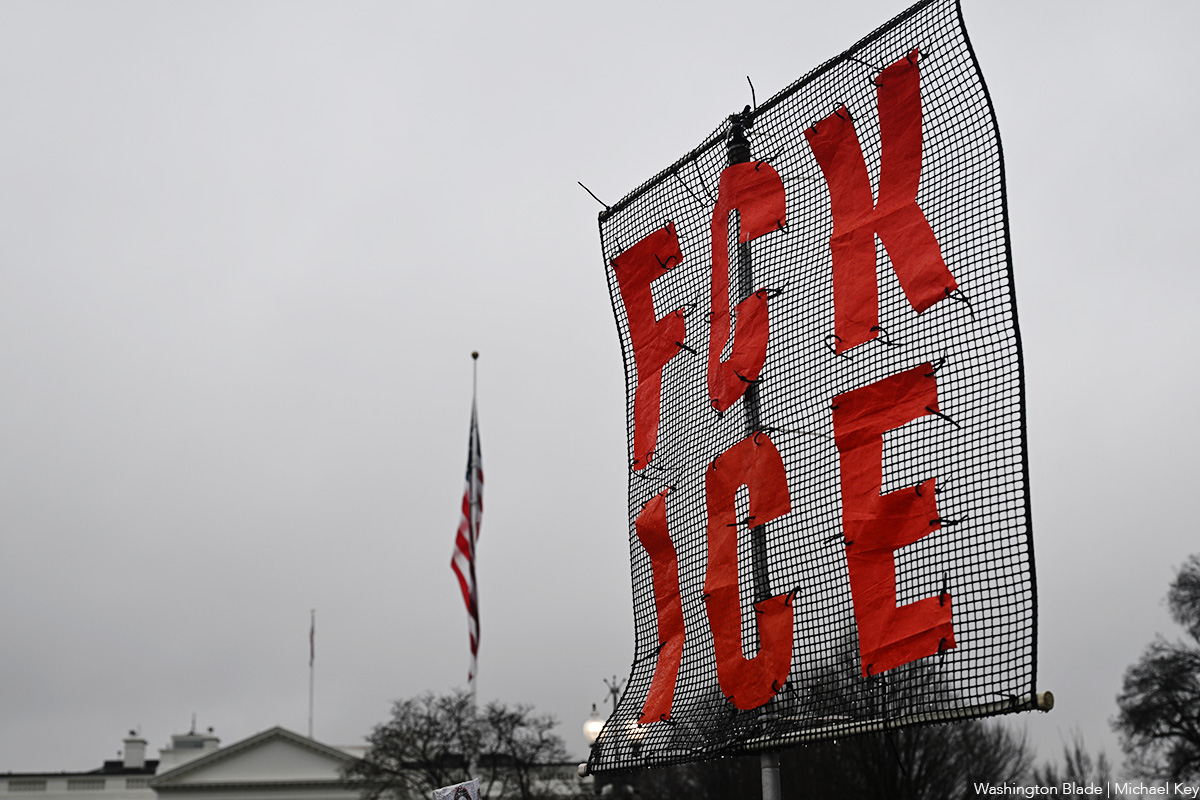
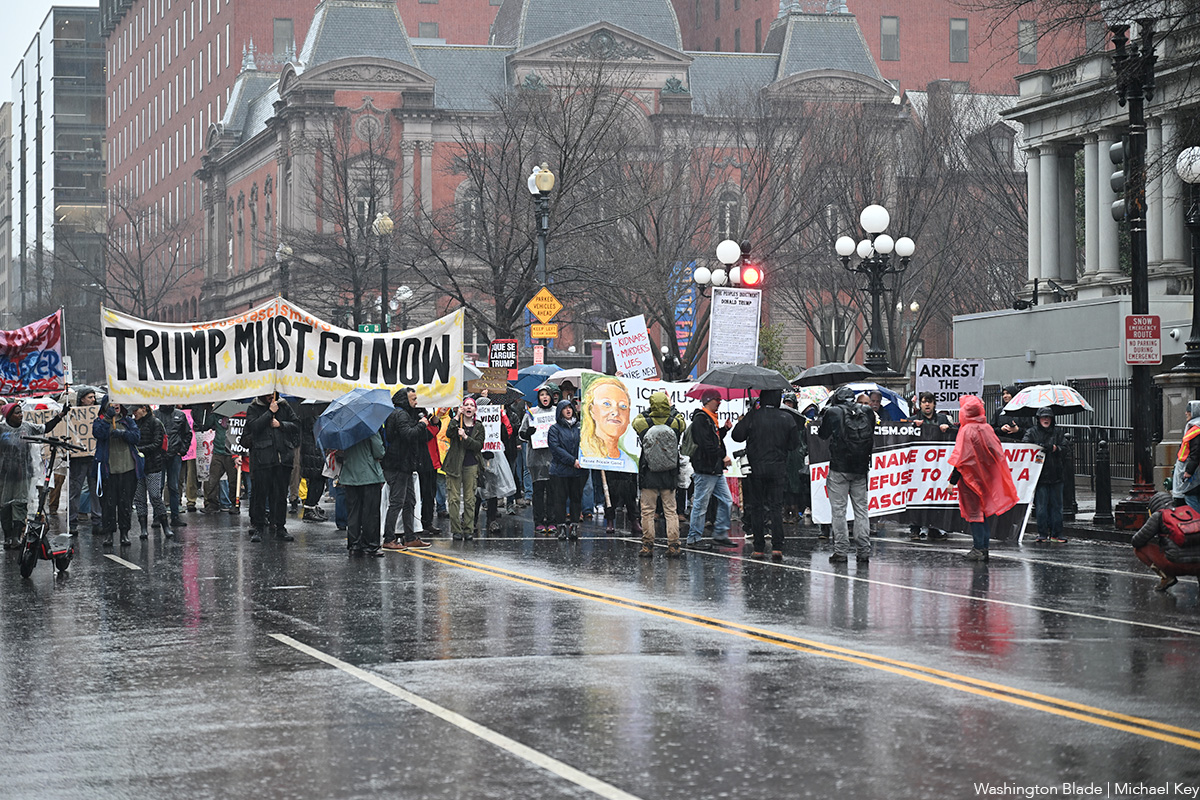

Books
Feminist fiction fans will love ‘Bog Queen’
A wonderful tale of druids, warriors, scheming kings, and a scientist
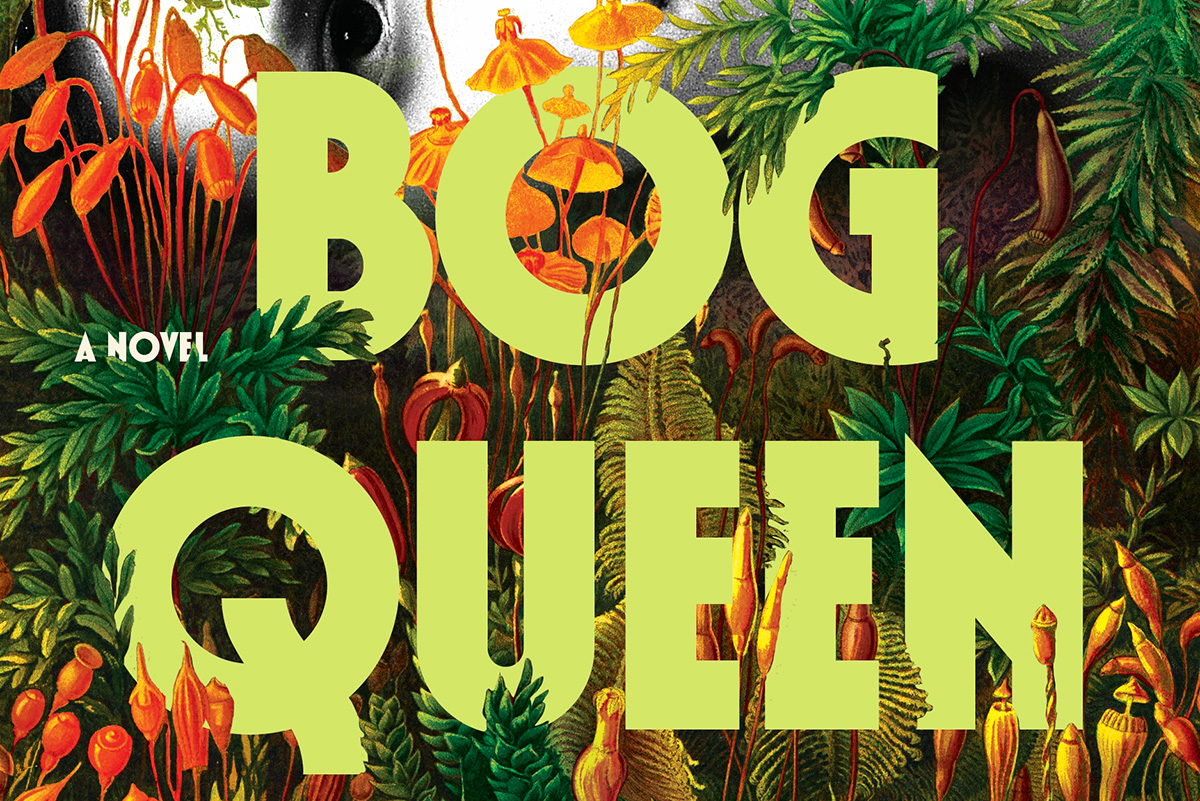
‘Bog Queen’
By Anna North
c.2025, Bloomsbury
$28.99/288 pages
Consider: lost and found.
The first one is miserable – whatever you need or want is gone, maybe for good. The second one can be joyful, a celebration of great relief and a reminder to look in the same spot next time you need that which you first lost. Loss hurts. But as in the new novel, “Bog Queen” by Anna North, discovery isn’t always without pain.

He’d always stuck to the story.
In 1961, or so he claimed, Isabel Navarro argued with her husband, as they had many times. At one point, she stalked out. Done. Gone, but there was always doubt – and now it seemed he’d been lying for decades: when peat cutters discovered the body of a young woman near his home in northwest England, Navarro finally admitted that he’d killed Isabel and dumped her corpse into a bog.
Officials prepared to charge him.
But again, that doubt. The body, as forensic anthropologist Agnes Lundstrom discovered rather quickly, was not that of Isabel. This bog woman had nearly healed wounds and her head showed old skull fractures. Her skin glowed yellow from decaying moss that her body had steeped in. No, the corpse in the bog was not from a half-century ago.
She was roughly 2,000 years old.
But who was the woman from the bog? Knowing more about her would’ve been a nice distraction for Agnes; she’d left America to move to England, left her father and a man she might have loved once, with the hope that her life could be different. She disliked solitude but she felt awkward around people, including the environmental activists, politicians, and others surrounding the discovery of the Iron Age corpse.
Was the woman beloved? Agnes could tell that she’d obviously been well cared-for, and relatively healthy despite the injuries she’d sustained. If there were any artifacts left in the bog, Agnes would have the answers she wanted. If only Isabel’s family, the activists, and authorities could come together and grant her more time.
Fortunately, that’s what you get inside “Bog Queen”: time, spanning from the Iron Age and the story of a young, inexperienced druid who’s hoping to forge ties with a southern kingdom; to 2018, the year in which the modern portion of this book is set.
Yes, you get both.
Yes, you’ll devour them.
Taking parts of a true story, author Anna North spins a wonderful tale of druids, vengeful warriors, scheming kings, and a scientist who’s as much of a genius as she is a nerd. The tale of the two women swings back and forth between chapters and eras, mixed with female strength and twenty-first century concerns. Even better, these perfectly mixed parts are occasionally joined by a third entity that adds a delicious note of darkness, as if whatever happens can be erased in a moment.
Nah, don’t even think about resisting.
If you’re a fan of feminist fiction, science, or novels featuring kings, druids, and Celtic history, don’t wait. “Bog Queen” is your book. Look. You’ll be glad you found it.
Movies
A Shakespearean tragedy comes to life in exquisite ‘Hamnet’
Chloe Zhao’s devastating movie a touchstone for the ages
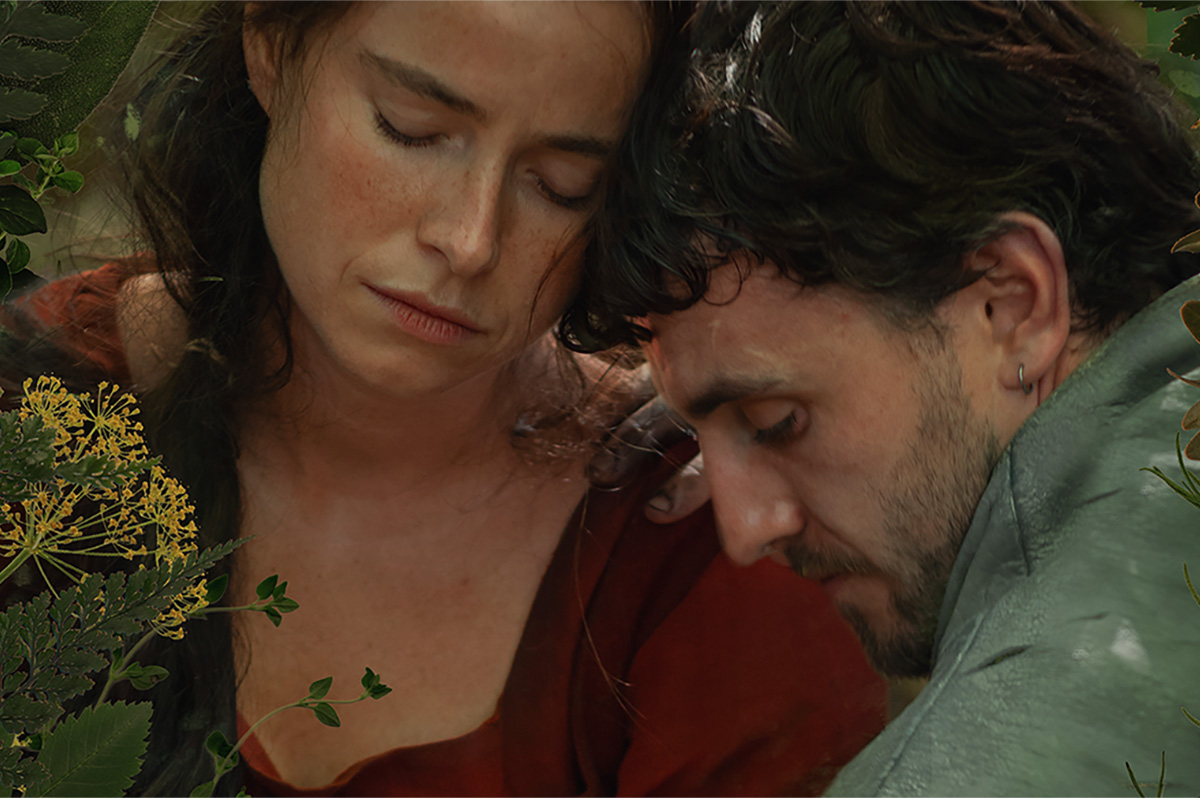
For every person who adores Shakespeare, there are probably a dozen more who wonder why.
We get it; his plays and poems, composed in a past when the predominant worldview was built around beliefs and ideologies that now feel as antiquated as the blend of poetry and prose in which he wrote them, can easily feel tied to social mores that are in direct opposition to our own, often reflecting the classist, sexist, and racist patriarchal dogma that continues to plague our world today. Why, then, should we still be so enthralled with him?
The answer to that question might be more eloquently expressed by Chloe Zhao’s “Hamnet” – now in wide release and already a winner in this year’s barely begun awards season – than through any explanation we could offer.
Adapted from the novel by Maggie O’Farrell (who co-wrote the screenplay with Zhao), it focuses its narrative on the relationship between Will Shakespeare (Paul Mescal) and his wife Agnes Hathaway (Jessie Buckley), who meet when the future playwright – working to pay off a debt for his abusive father – is still just a tutor helping the children of well-to-do families learn Latin. Enamored from afar at first sight, he woos his way into her life, and, convincing both of their families to approve the match (after she becomes pregnant with their first child), becomes her husband. More children follow – including Hamnet (Jacobi Jupe), a “surprise” twin boy to their second daughter – but, recognizing Will’s passion for writing and his frustration at being unable to follow it, Agnes encourages him to travel to London in order to immerse himself in his ambitions.
As the years go by, Agnes – aided by her mother-in-law (Emily Watson) and guided by the nature-centric pagan wisdom of her own deceased mother – raises the children while her husband, miles away, builds a successful career as the city’s most popular playwright. But when an outbreak of bubonic plague results in the death of 11-year-old Hamnet in Will’s absence, an emotional wedge is driven between them – especially when Agnes receives word that her husband’s latest play, titled “Hamlet,” an interchangeable equivalent to the name of their dead son, is about to debut on the London stage.
There is nothing, save the bare details of circumstance around the Shakespeare family, that can be called factual about the narrative told in “Hamnet.” Records of Shakespeare’s private life are sparse and short on context, largely limited to civic notations of fact – birth, marriage, and death announcements, legal documents, and other general records – that leave plenty of space in which to speculate about the personal nuance such mundane details might imply. What is known is that the Shakespeares lost their son, probably to plague, and that “Hamlet” – a play dominated by expressions of grief and existential musings about life and death – was written over the course of the next five years. Shakespearean scholars have filled in the blanks, and it’s hard to argue with their assumptions about the influence young Hamnet’s tragic death likely had over the creation of his father’s masterwork. What human being would not be haunted by such an event, and how could any artist could avoid channeling its impact into their work, not just for a time but for forever after?
In their screenplay, O’Farrell and Zhao imagine an Agnes Shakespeare (most records refer to her as “Anne” but her father’s will uses the name “Agnes”) who stands apart from the conventions of her town, born of a “wild woman” in the woods and raised in ancient traditions of mysticism and nature magic before being adopted into her well-off family, who presents a worthy match and an intellectual equal for the brilliantly passionate creator responsible for some of Western Civilization’s most enduring tales. They imagine a courtship that would have defied the customs of the time and a relationship that feels almost modern, grounded in a love and mutual respect that’s a far cry from most popular notions of what a 16th-century marriage might look like. More than that, they imagine that the devastating loss of a child – even in a time when the mortality rate for children was high – might create a rift between two parents who can only process their grief alone. And despite the fact that almost none of what O’Farrell and Zhao present to us can be seen, at best, as anything other than informed speculation, it all feels devastatingly true.
That’s the quality that “Hamnet” shares with the ever-popular Will Shakespeare; though it takes us into a past that feels as alien to us as if it took place upon a different planet, it evokes a connection to the simple experience of being human, which cuts through the differences in context. Just as the kings, heroes, and fools of Shakespeare’s plays express and embody the same emotional experiences that shape our own mundane modern lives, the film’s portrayal of these two real-life people torn apart by personal tragedy speaks directly to our own shared sense of loss – and it does so with an eloquence that, like Shakespeare’s, emerges from the story to make it feel as palpable as if their grief was our own.
Yes, the writing and direction – each bringing a powerfully feminine “voice” to the story – are key to the emotional impact of “Hamnet,” but it’s the performances of its stars that carry it to us. Mescal, once more proving himself a master at embodying the kind of vulnerable masculine tenderness that’s capable of melting our hearts, gives us an accessible Shakespeare, driven perhaps by a spark of genius yet deeply grounded in the tangible humanity that underscores the “everyman” sensibility that informs the man’s plays. But it’s Buckley’s movie, by a wide margin, and her bold, fierce, and deeply affecting performance gives voice to a powerful grief, a cry against the injustice and cruelty of what we fumblingly call “fate” that resonates deep within us and carries our own grief, over losses we’ve had and losses we know are yet to come, along with her on the journey to catharsis.
That’s the word – “catharsis” – that defines why Shakespeare (and by extension, “Hamnet”) still holds such power over the imagination of our human race all these centuries later. The circumstantial details of his stories, wrapped up in ancient ideologies that still haunt our cultural imagination, fall away in the face of the raw expression of humanity to which his characters give voice. When Hamlet asks “to be or not to be?,” he is not an old-world Danish Prince contemplating revenge against a traitor who murdered his father; he is Shakespeare himself, pondering the essential mystery of life and death, and he is us, too.
Likewise, the Agnes Shakespeare of “Hamnet” (masterfully enacted by Buckley) embodies all our own sorrows – past and future, real and imagined – and connects them to the well of human emotion from which we all must drink; it’s more powerful than we expect, and more cleansing than we imagine, and it makes Zhao’s exquisitely devastating movie into a touchstone for the ages.
We can’t presume to speak for Shakespeare, but we are pretty sure he would be pleased.
-

 Colombia4 days ago
Colombia4 days agoGay Venezuelan man who fled to Colombia uncertain about homeland’s future
-

 Arts & Entertainment4 days ago
Arts & Entertainment4 days ago2026 Most Eligible LGBTQ Singles nominations
-

 District of Columbia4 days ago
District of Columbia4 days agoKennedy Center renaming triggers backlash
-

 District of Columbia4 days ago
District of Columbia4 days agoNew interim D.C. police chief played lead role in security for WorldPride

